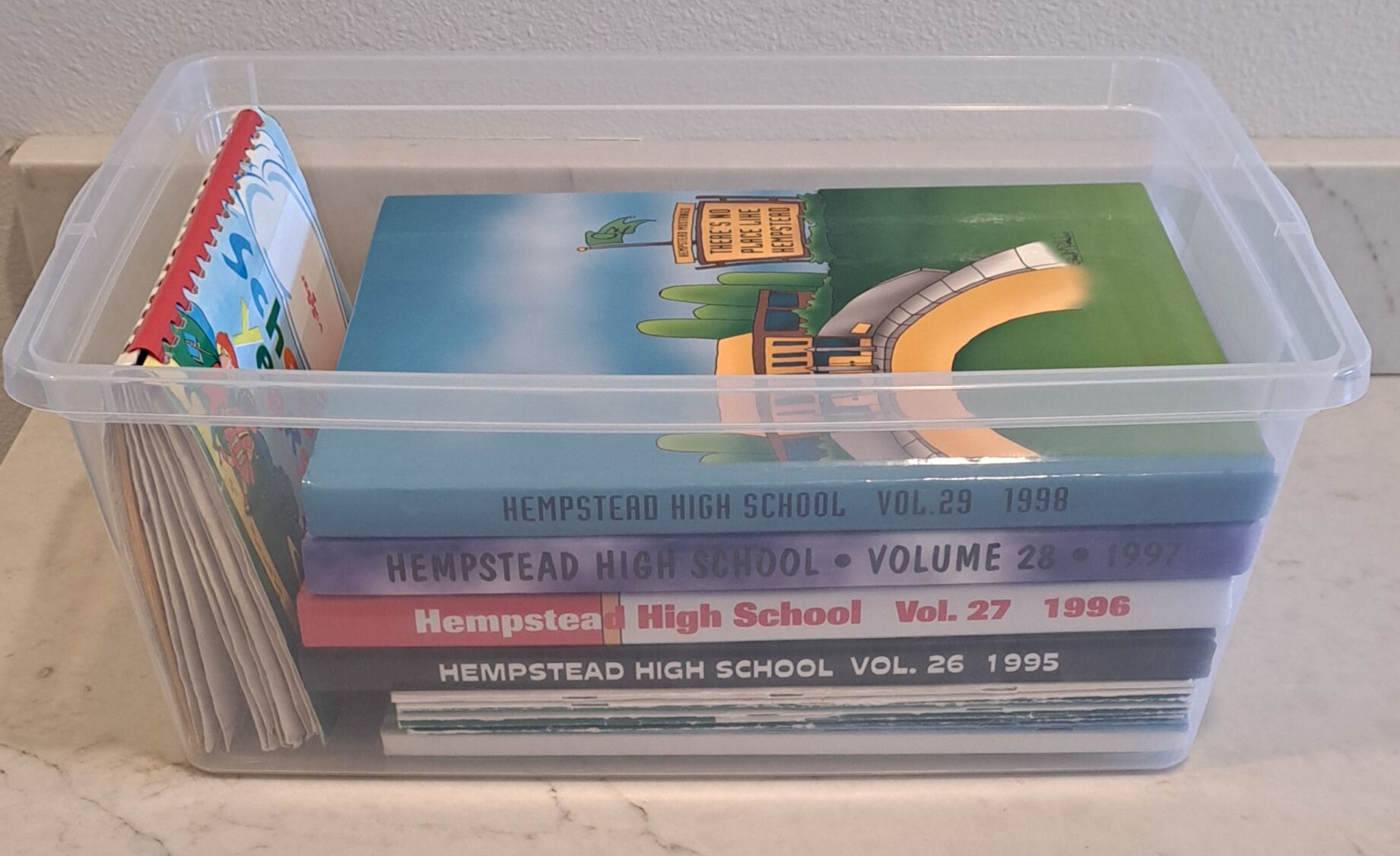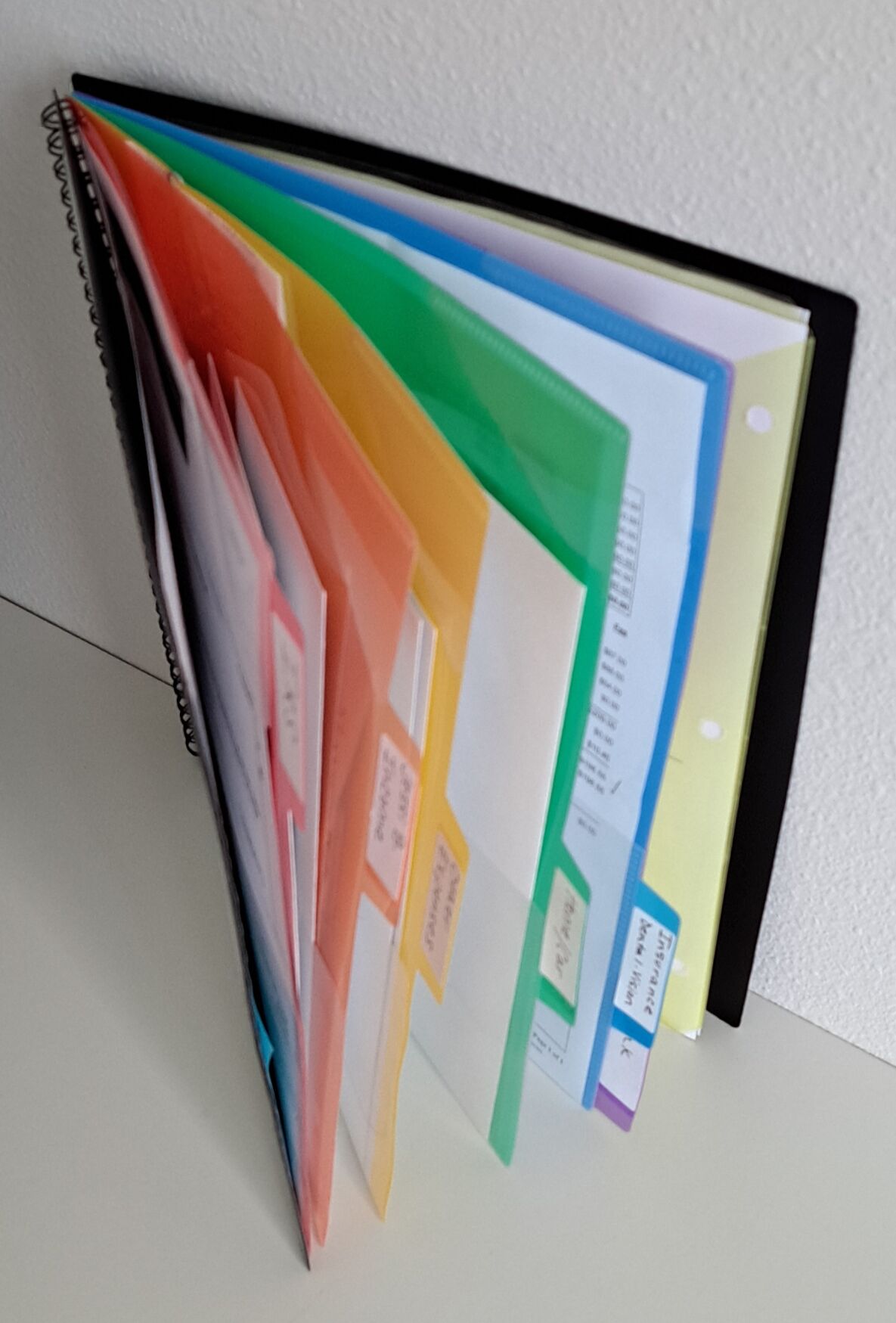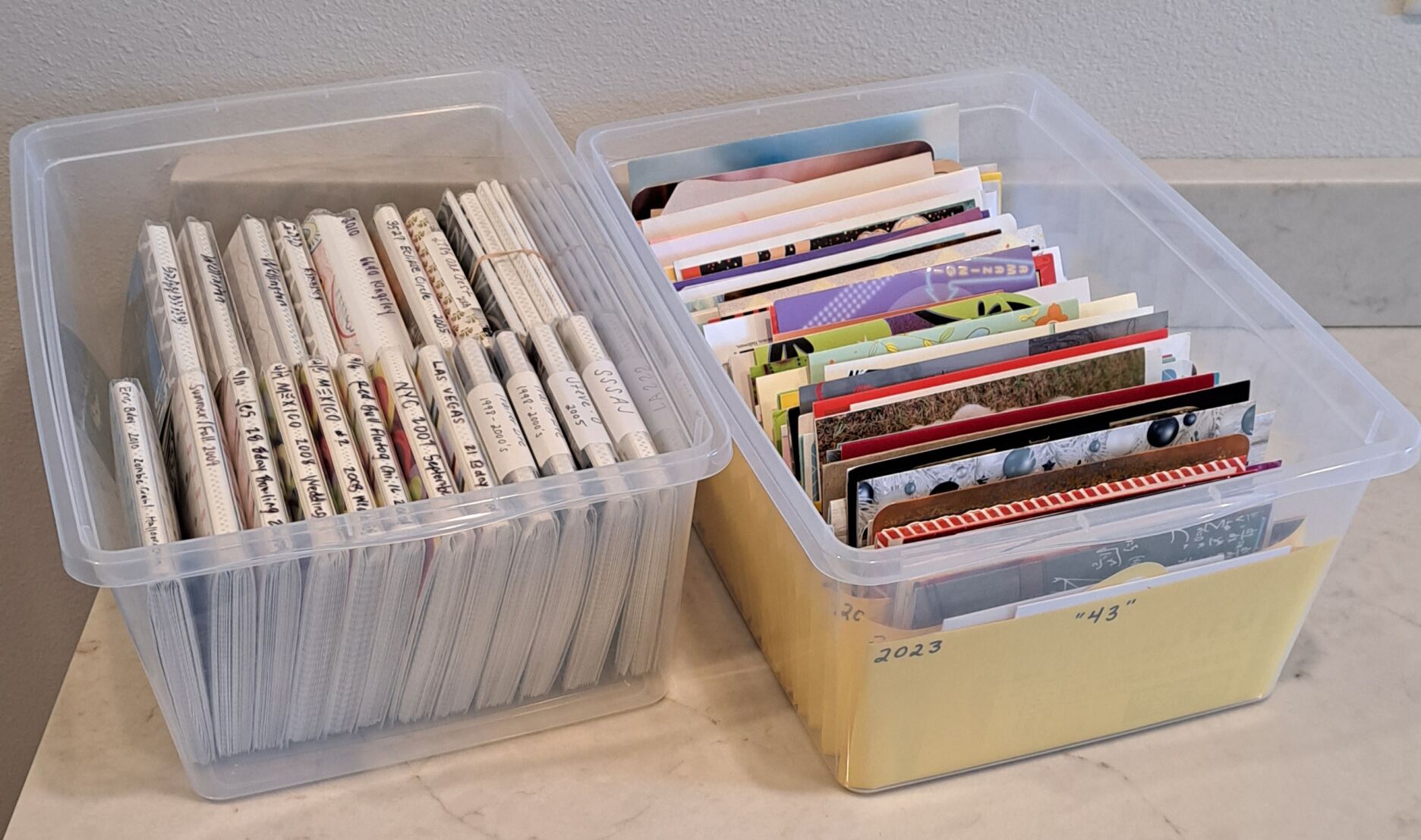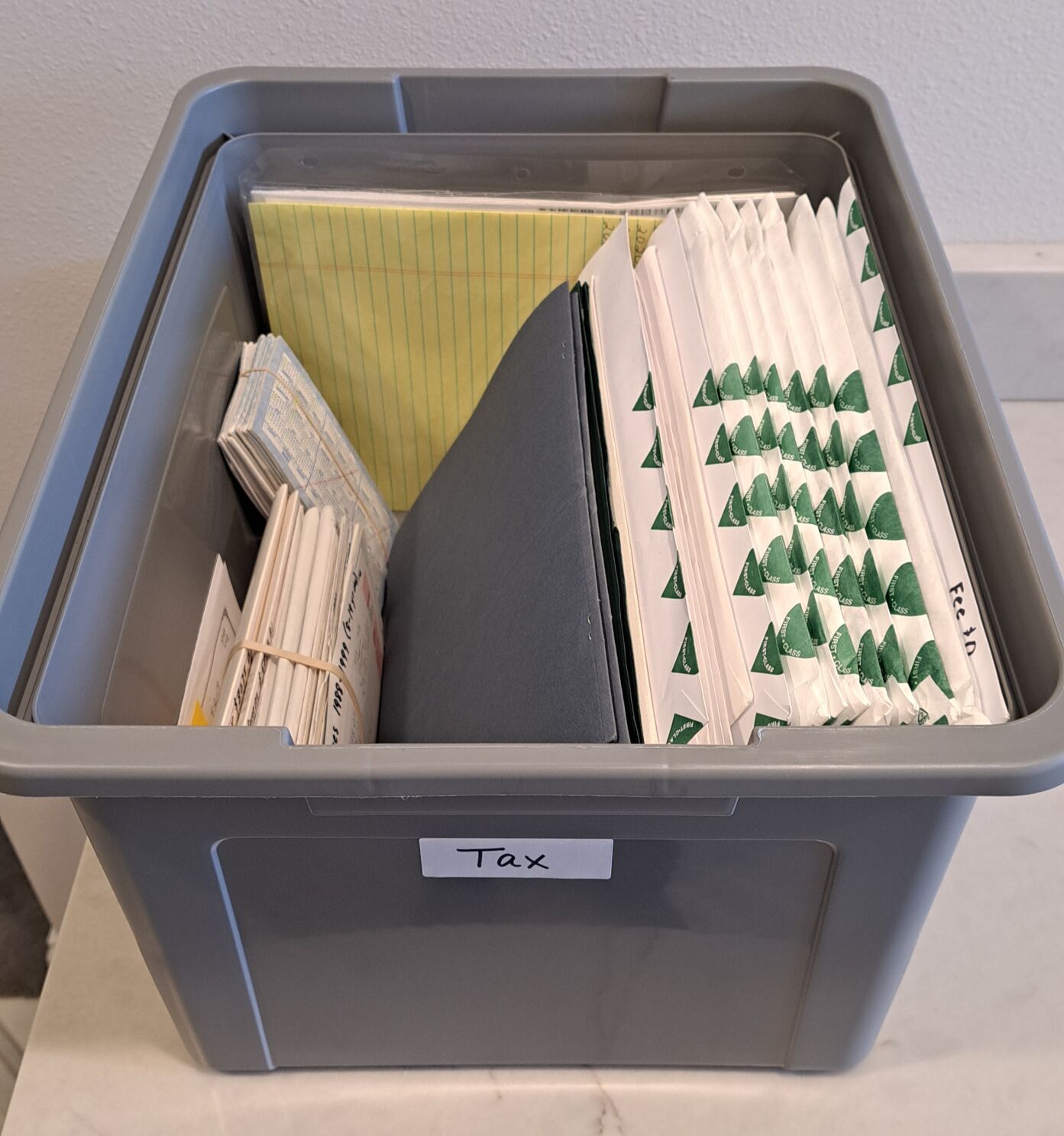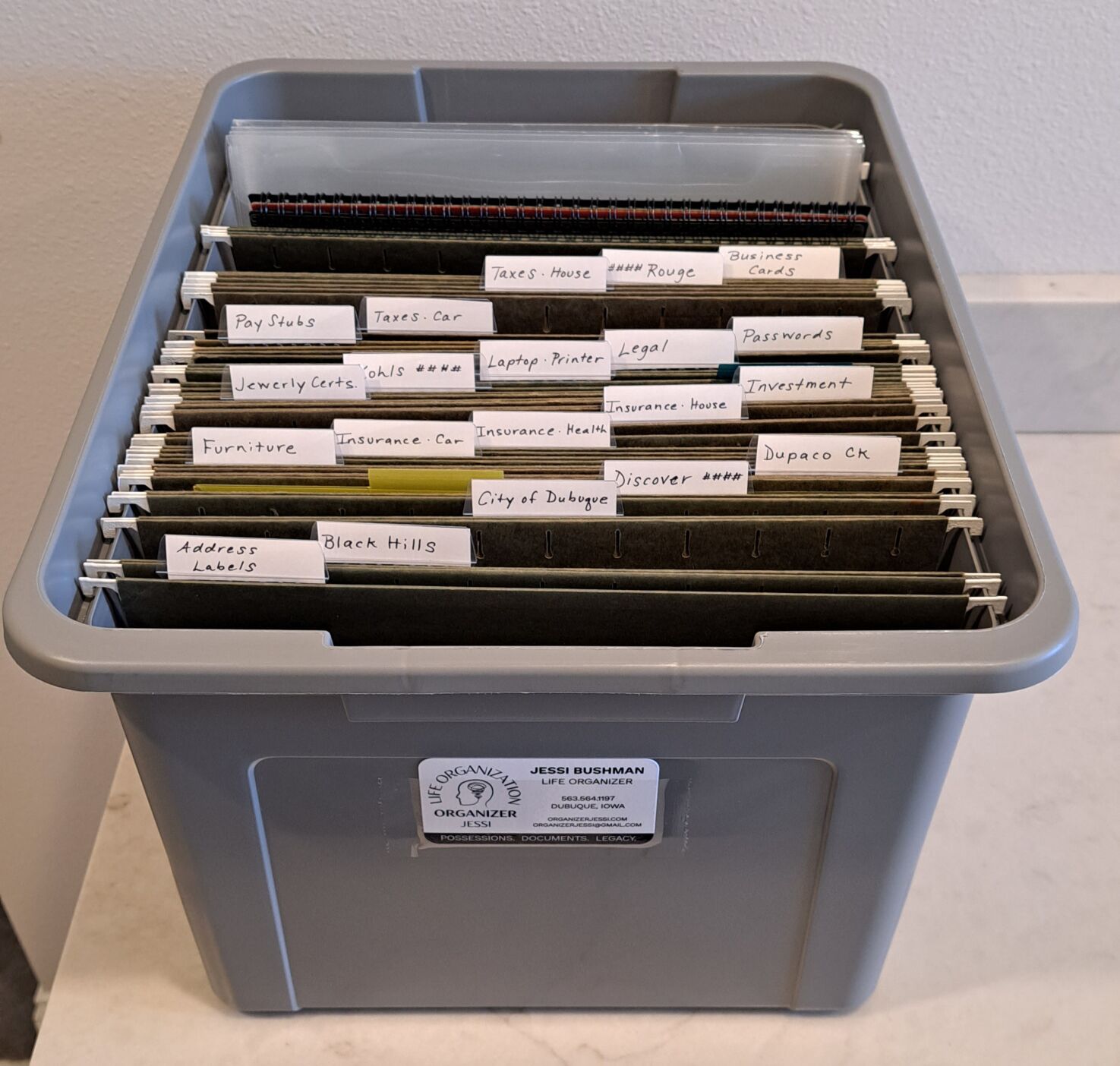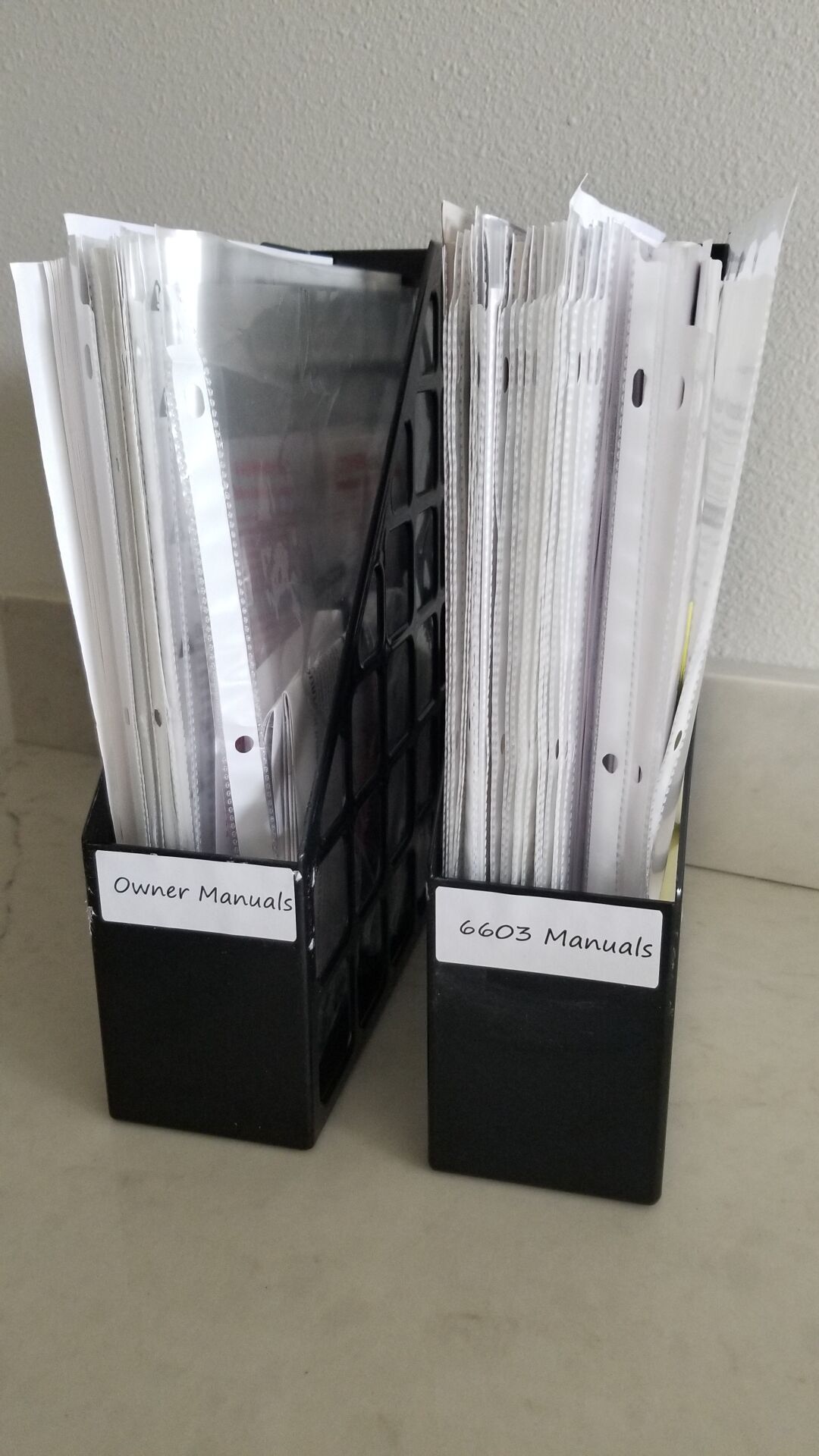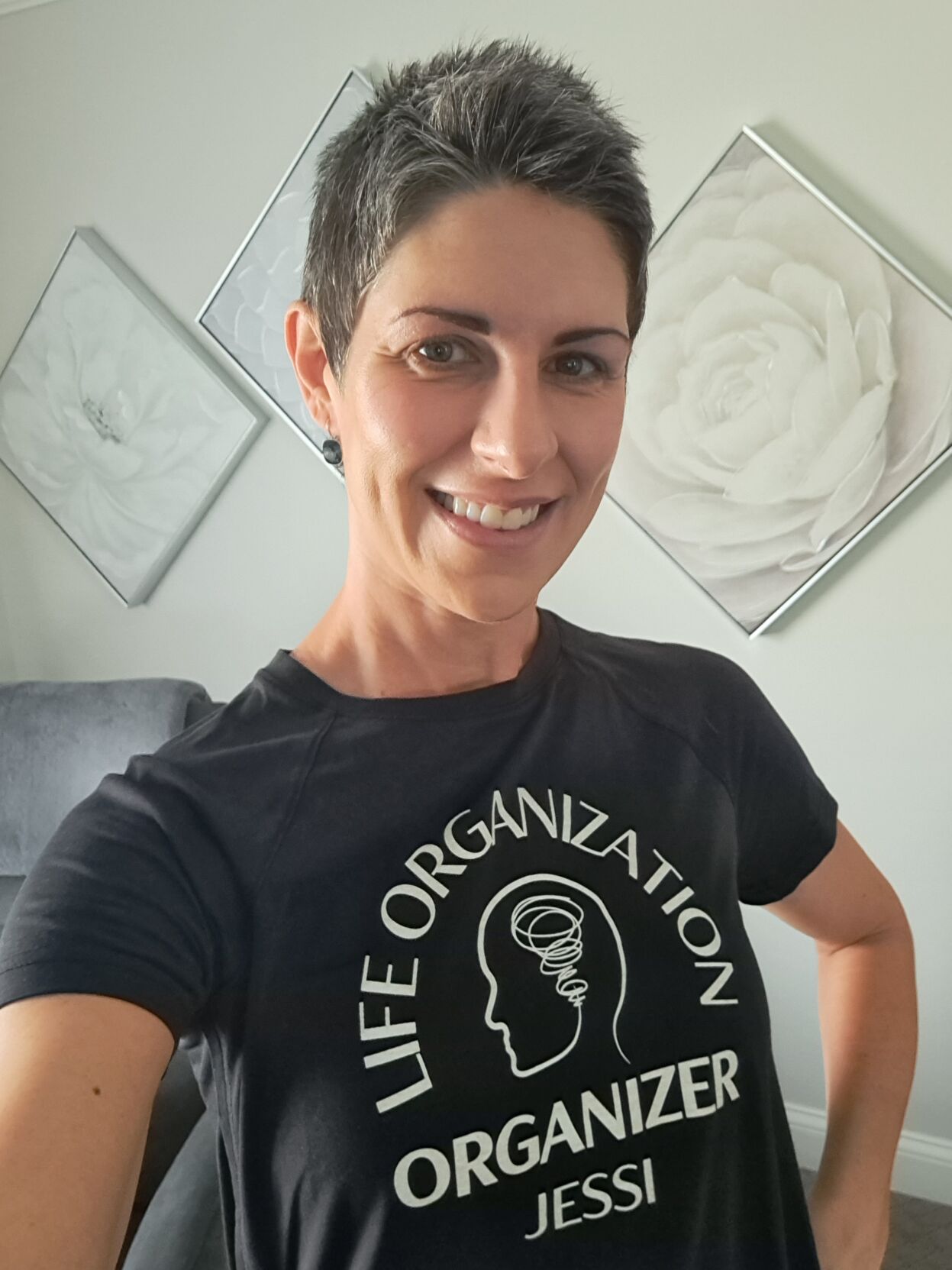Paper or plastic? Neither, please. I prefer a file system.
For me and other organized individuals, it’s time to get excited about tax season.
Before you curse me for my giddy approach to close out another year, imagine how much of your time, effort, money and sanity could be saved if documents were organized as they came in. It’s possible to do and easier than you might think.
My career has revolved around paper (eventually electronic documents, too), so I know my way around a file system. The key word is “system,” and I’d like you to think about yours. Do you have one?
A system does not include:
Shoving documents into a bag (paper or plastic).
Shoving documents into a box (Amazon or Girl Scout cookies).
Opening mail, looking at contents and shoving documents back into the envelope.
Stacking incoming mail in various locations, a.k.a. “misplacing” important documents.
Not opening the mail. At all.
When it comes to important documents, electronic files and tax records, it’s easy to view the task of organizing these papers as a negative. Welcome to chaos — the chaos we’ve created for ourselves with procrastination.
Since it’s the beginning of a new year, now is an ideal time to create a basic file system for everyone in your home.
The function of a basic file system (not piles) is to have a place for daily receipts, monthly bills, statements and records related to home/vehicle/personal upkeep and maintenance.
If you have kids, their basic file system (not piles) could contain photos, report cards, sports memorabilia, special event/performances, greeting cards, etc.
I have three hanging file bins for my documents:
1. Short-term personal documents. Daily receipts, monthly/annual bills, financial. I keep this near my entry door for quick file access. I clear it out annually.
2. Long-term personal documents. Taxes, health records, identification, ownership, home/vehicle maintenance. I keep this in a storage room. I review this every few years.
3. Business documents. I keep this in my office. I clear it out annually.
Storing file bins where you use/access them is a huge time saver. Place short-term documents in your daily space for easy access, and keep long-term documents in a storage area. If you have the room to keep everything together, great.
Ideally, each family member should have two files: Short- and long-term retention.
Unfortunately, I’ve worked with countless clients who never learned how to create or maintain a file system. The beauty is, we can create our file system anytime at any age.
File systems are customized for each person and their lifestyle.
Additional file systems could include organization of past family documents, historic photos, relatives certificates, genealogy tracking, medical research … the list goes on.
Documents represent our identity and ownership, something that is ever-changing.
We obtain documents the day we are born until after the day we die.
• We obtain documents for graduating.
• We obtain documents reporting our behavior.
• We obtain documents allowing us to drive.
• We obtain documents allowing us to vote.
• We obtain documents allowing us to travel.
• We obtain documents regarding our health.
• We obtain documents when we get married or divorced.
• We obtain documents for invoices and payments.
It’s easy to say our life revolves around documents.
That said, how has our prioritization of document organization and retention become such a low priority task?
If you’re not excited about what documents you need to keep tabs on, it’s time to re-evaluate what you have going on in life to factor out what doesn’t serve you and lessen some of the documentation trail needed.
How do we factor out documents that no longer serve us? Easy.
• Unsubscribe to mailers and emails.
• Re-evaluate/downsize subscriptions.
• Downsize credit cards based on rewards that suit your lifestyle.
• Sell items that require documentation of ownership, that are no longer used.
• Downsize tax records — seven to 10 years retention.
• Distribute life documents to adult kids.
• Dispose of irrelevant and no longer valid documents.
If creating a file system is not at the top of your New Years resolution list, consider the benefits of creating a file system for yourself and others in your family.
It’s never too late to learn a new life skill. A customized file system is an excellent way to simplify the next 365 days, as well as many years to come.
Also, your family and accountant will thank you.
Jessi Bushman is a professional organizer, member of the Iowa Professional Organizers Association and owner of Organizer Jessi in Dubuque. Visit her at organizerjessi.com.

